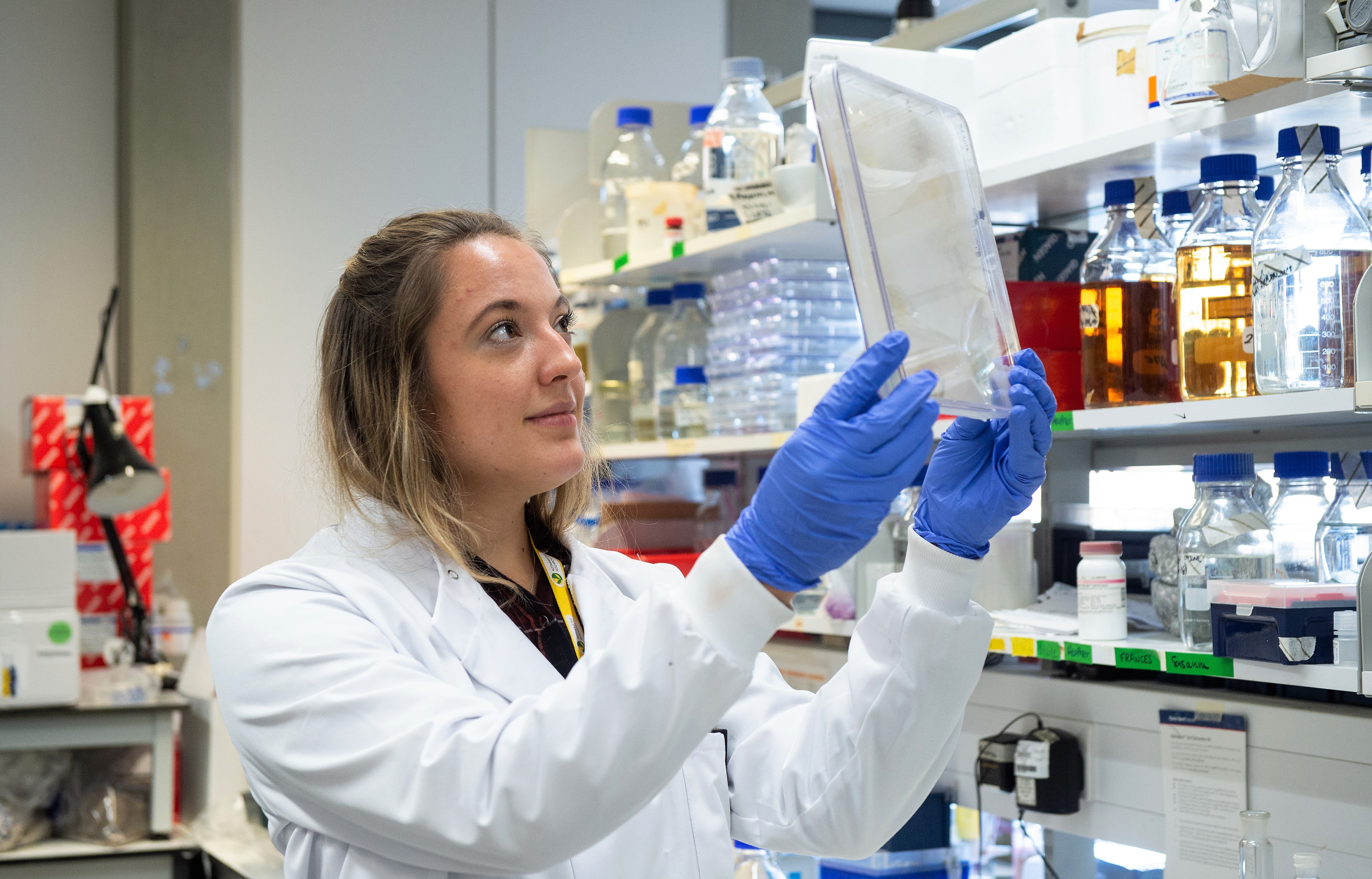The big picture: using wildflower strips for pest control
Chemical fertilisers reduce the number of nutrient solubilising bacteria associated with the roots of wheat, according to new research.
The Rothamsted led team found the addition of fertiliser decreased the proportion of bacteria that help make nutrients such as nitrogen, potassium, phosphorous, iron, and zinc more readily available from soil.
The results point to the idea that the addition of fertiliser means that plants no longer need to interact with these beneficial bacteria to access the nutrients required to grow.
The authors say this knowledge will benefit the development of more targeted biofertilization strategies.
Lead author Tessa Reid said: “Current high-yielding dwarf crop varieties rely on unsustainable levels of inorganic chemical fertilizers. Understanding the effect of fertilization regime on growth promoting bacteria is essential to optimize microbiome function in the sustainable intensification of agriculture.”

In the study, the beneficial plant-growth promoting bacteria were found to have decreased, both on and around the roots of fertilised plants.
Strikingly, the amount of growth promoting bacteria living on the roots fell from 91% of total bacteria for unfertilized plants to just 19% for those that received the fertiliser dose.
Although the mechanism behind the decline is unknown, it does back up other Rothamsted findings that fertilisers are essentially ‘short-circuiting’ the natural cycling of nutrients by soil microbes.
Study lead, Dr Tim Mauchline said: “This study gives evidence that wheat plants can select growth-promoting bacteria in their root environment which could establish mutually beneficial associations with plants. However, high levels of inorganic chemical fertilizer application reduces the abundance of these bacteria in soil around plant roots.”
Whereas most other studies on the soil microbiome have focused solely on describing the microbial community, here, the team complemented this approach with microbial functional screens.
They isolated bacterial species from the soil samples, grew them up in the lab and subjected them to a series of tests to monitor their ability to solubilise key macro and micro-nutrients.
“We hope that this work contributes to a shift from simple studies looking at which species are present to a conceptual framework which attempts to identify and explain patterns in the soil microbiome in both farmed and natural systems,” said Tessa.
The research is published in Frontiers in Microbiology and was funded by the BBSRC, NERC, and the Lawes Agricultural Trust.

Post Doctoral Researcher

Plant and Soil Microbiologist
Rothamsted Research is the longest-running agricultural research institute in the world. We work from gene to field with a proud history of ground-breaking
discoveries in areas as diverse as crop management, statistical interpretation and soil health. Our founders, in 1843, were the pioneers of modern
agriculture, and we are known for our imaginative science and our collaborative approach to developing innovative farm practice.
Through independent research, we make significant contributions to improving agri-food systems in the UK and internationally, with
economic impact estimated to exceed £3 bn in annual contribution to the UK economy. Our strength lies in our systems approach, which combines strategic research,
interdisciplinary teams and multiple partnerships.
Rothamsted is home to three unique National Bioscience Research Infrastructures which are open to researchers from all over the world:
The Long-Term Experiments,
Rothamsted Insect Survey and the
North Wyke Farm Platform.
We are strategically funded by the Biotechnology and Biological Sciences Research Council (BBSRC), with additional support from other national and
international funding streams, and from industry. We are also supported by the Lawes Agricultural Trust (LAT).
The Biotechnology and Biological Sciences Research Council is part of UK Research and Innovation, a non-departmental public body funded by a grant-in-aid
from the UK government.
BBSRC invests to push back the frontiers of biology and deliver a healthy, prosperous and sustainable future. Through our investments, we build and support a vibrant,
dynamic and inclusive community which delivers ground-breaking discoveries and develops bio-based solutions that contribute to tackling global challenges,
such as sustainable food production, climate change, and healthy ageing.
As part of UK Research and Innovation (UKRI), we not only play a pivotal role in fostering connections that enable the UK’s world-class research and innovation system
to flourish – we also have a responsibility to enable the creation of a research culture that is diverse, resilient, and engaged.
BBSRC proudly forges interdisciplinary collaborations where excellent bioscience has a fundamental role. We pioneer approaches that enhance the equality, diversity,
and inclusion of talent by investing in people, infrastructure, technologies, and partnerships on a global scale.
The Lawes Agricultural Trust, established in 1889 by Sir John Bennet Lawes, supports Rothamsted Research’s national and international agricultural science through the provision of land, facilities and funding. LAT, a charitable trust, owns the estates at Harpenden and Broom's Barn, including many of the buildings used by Rothamsted Research. LAT provides an annual research grant to the Director, accommodation for nearly 200 people, and support for fellowships for young scientists from developing countries. LAT also makes capital grants to help modernise facilities at Rothamsted, or invests in new buildings.